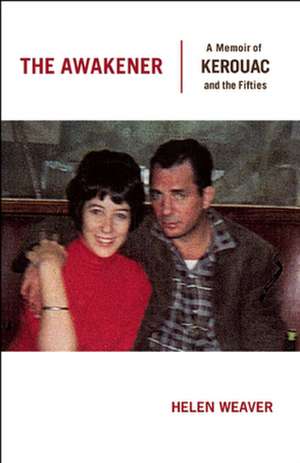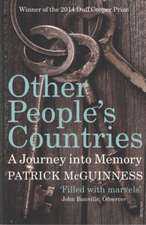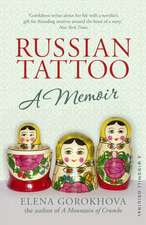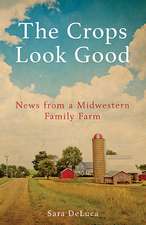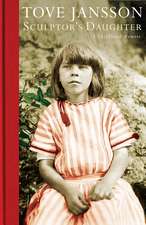The Awakener: A Memoir of Jack Kerouac and the Fifties
Autor Helen Weaveren Limba Engleză Paperback – 31 oct 2009
The Awakener is Helen Weaver's long awaited memoir of her adventures with Jack Kerouac, Allen Ginsberg, Lenny Bruce, and other wild characters from the New York City of the fifties and sixties. The sheltered but rebellious daughter of bookish Midwestern parents, Weaver survived a repressive upbringing in the wealthy suburbs of Scarsdale and an early divorce to land in Greenwich Village just in time for the birth of rock 'n' roll—and the counterculture movement known as the Beat Generation. Shortly after her arrival Kerouac, Ginsberg, and company—old friends of her roommate—arrive on their doorstep after a non-stop drive from Mexico. Weaver and Kerouac fall in love on sight, and Kerouac moves in.
"…[Weaver] paints a romantic picture of Greenwich Village in the 1950s and '60s, when she worked in publishing and hung out with Allen Ginsberg and the poet Richard Howard and was wild and loose, getting high and falling into bed almost immediately with her crushes, including Lenny Bruce…Her descriptions of the Village are evocative, recalling a time when she wore 'long skirts, Capezio ballet shoes and black stockings,' and used to 'sit in the Bagatelle and have sweet vermouth on the rocks with a twist of lemon.' Early on, she quotes Pasternak: 'You in others: this is your soul.' Kerouac's soul lives on through many people—Joyce Johnson, for one—but few have been as adept as Weaver at capturing both him and the New York bohemia of the time. He was lucky to have met her."—Tara McKelvey, The New York Times Book Review
“There is a tendency for memoirs written by women about The Great Man to be self-abnegating exercises in a kind of inverted narcissism—the author seeking to prove her worth as muse, as consort, as chosen one. Not so with Helen Weaver’s beautiful, plainspoken elegy for her time spent with Jack Kerouac, who suddenly appeared at her door in the West Village one white, frosty morning with Allen Ginsberg, who knew Weaver’s roommate, in tow."—New York Post
"Helen Weaver’s book was a revelation to me!…This is the most graphic, honest, shameless, and moving documentary of what the newly liberated women in cities got up to—how they lived, loved, and created. Who knew? It is time they did! And here’s how."—Carolyn Cassady
"Weaver recreates the excitement of a time when things were radically changing and shows us what it was like living with an eccentric genius at the turning point of his life. Eventually she asks Jack to leave but they remain friends, and over the years her respect for his writing grows even as Kerouac's reputation undergoes a gradual transition from enfant terrible to American icon. She comes to realize that by writing On the Road he woke America up—along with her—from the long dream of the fifties. And the Buddhist philosophy that once struck her as Jack's excuse for doing whatever he liked because 'nothing is real, it's all a dream' eventually becomes her own."
"Helen Weaver's memoir is a riveting account of her love affair and friendship with Jack Kerouac. She is both clear-eyed and passionate about him, and writes with truly amazing grace."—Ann Charters
Helen Weaver has translated over fifty books from the French of which one, Antonin Artaud: Selected Writings (Farrar, Straus and Giroux ) was a Finalist for the National Book Award in translation in 1976. She is co-author and general editor of the Larousse Enyclopedia of Astrology and author of The Daisy Sutra, a book on animal communication. She lives in Kingston, New York.
"…[Weaver] paints a romantic picture of Greenwich Village in the 1950s and '60s, when she worked in publishing and hung out with Allen Ginsberg and the poet Richard Howard and was wild and loose, getting high and falling into bed almost immediately with her crushes, including Lenny Bruce…Her descriptions of the Village are evocative, recalling a time when she wore 'long skirts, Capezio ballet shoes and black stockings,' and used to 'sit in the Bagatelle and have sweet vermouth on the rocks with a twist of lemon.' Early on, she quotes Pasternak: 'You in others: this is your soul.' Kerouac's soul lives on through many people—Joyce Johnson, for one—but few have been as adept as Weaver at capturing both him and the New York bohemia of the time. He was lucky to have met her."—Tara McKelvey, The New York Times Book Review
“There is a tendency for memoirs written by women about The Great Man to be self-abnegating exercises in a kind of inverted narcissism—the author seeking to prove her worth as muse, as consort, as chosen one. Not so with Helen Weaver’s beautiful, plainspoken elegy for her time spent with Jack Kerouac, who suddenly appeared at her door in the West Village one white, frosty morning with Allen Ginsberg, who knew Weaver’s roommate, in tow."—New York Post
"Helen Weaver’s book was a revelation to me!…This is the most graphic, honest, shameless, and moving documentary of what the newly liberated women in cities got up to—how they lived, loved, and created. Who knew? It is time they did! And here’s how."—Carolyn Cassady
"Weaver recreates the excitement of a time when things were radically changing and shows us what it was like living with an eccentric genius at the turning point of his life. Eventually she asks Jack to leave but they remain friends, and over the years her respect for his writing grows even as Kerouac's reputation undergoes a gradual transition from enfant terrible to American icon. She comes to realize that by writing On the Road he woke America up—along with her—from the long dream of the fifties. And the Buddhist philosophy that once struck her as Jack's excuse for doing whatever he liked because 'nothing is real, it's all a dream' eventually becomes her own."
"Helen Weaver's memoir is a riveting account of her love affair and friendship with Jack Kerouac. She is both clear-eyed and passionate about him, and writes with truly amazing grace."—Ann Charters
Helen Weaver has translated over fifty books from the French of which one, Antonin Artaud: Selected Writings (Farrar, Straus and Giroux ) was a Finalist for the National Book Award in translation in 1976. She is co-author and general editor of the Larousse Enyclopedia of Astrology and author of The Daisy Sutra, a book on animal communication. She lives in Kingston, New York.
Preț: 133.46 lei
Nou
Puncte Express: 200
Preț estimativ în valută:
25.54€ • 26.74$ • 21.18£
25.54€ • 26.74$ • 21.18£
Carte disponibilă
Livrare economică 19 martie-02 aprilie
Preluare comenzi: 021 569.72.76
Specificații
ISBN-13: 9780872865051
ISBN-10: 0872865053
Pagini: 260
Ilustrații: 10 B&W photographs
Dimensiuni: 147 x 216 x 19 mm
Greutate: 0.33 kg
Editura: City Lights Books
Locul publicării:United States
ISBN-10: 0872865053
Pagini: 260
Ilustrații: 10 B&W photographs
Dimensiuni: 147 x 216 x 19 mm
Greutate: 0.33 kg
Editura: City Lights Books
Locul publicării:United States
Recenzii
"A wonderful view of Jack Kerouac and, most of all, a classic coming of age story. Brilliant and very moving to read: honest, funny, sad, and beautiful. I couldn't put it down."—David Amram
"A remarkable and intimate portrait of Greenwich Village in the fifties. The material on Kerouac, Ginsberg, Lenny Bruce, et al, provides a valuable and highly readable account of that important era. A wonderful and irreplaceable book, gracefully written with a sense of humor as well as of history."—Dan Wakefield
"Weaver discovered herself in the 1950s, with Kerouac and other artists like Ginsberg and Lenny Bruce, and although most Americans don't have an impressive list of famous friends, her story is our story; every twenty-something college graduate experiences the ecstasy of new ideas and profound perception that comes with real life. Whether our is in New York City or Nowhere, USA, Weaver's experience is comparable to all our experiences in this country—this is what makes The Awakener so readable and touching; these characters appear in every American's past."—Meredith Boe
"This book does a good job of humanizing and demystifying the Beats. All the parties, problems, romances, brief affairs and hurt feelings Weaver talks about are specific to her and her friends in the '50s, but very much like the things my friends and I went through in the ‘70s, and that artistic young people are going through today while coming of age, groping for identity, finding love and making their way in the world."—Dan Barth
"This book is evidence that the fifties had more going on than Leave It to Beaver. It's primarily the story of Helen Weaver’s love affair with Jack Kerouac, but it also delves into her juicy romances with other lovers (of both genders), most notably Lenny Bruce. Weaver, who Kerouac portrayed as Ruth Heaper in Desolation Angels, had a whirlwind life outside of bed, too. She was involved with the publishing industry, was a French–English translator, and fought for the legalization of marijuana. At twenty-five, Weaver got her first taste of Buddhism from Kerouac, but she wasn’t yet ready for the first noble truth. Years later she read The Miracle of Mindfulness, by Thich Nhat Hanh, and felt that she had come home. That said, she admits, 'My own practice has never really taken hold, and in this I am a little like Jack.'"—Andrea Miller
"The Awakener's first chapters are energized by Weaver's personal liberation at a time when America itself was starting to wake up. She smokes pot, explores the limits of her sexuality and defends Bill Haley's 'Rock Around the Clock' to high-minded literary pals like poet Richard Howard…But the most touching moments in the book take place when Weaver focuses her keen powers of observation on the soul of her wounded hero…Now 78 and living in Woodstock, she has come to appreciate the two-fold nature of his role as an awakener in her life. As a playful and enthusiastic lover, Kerouac helped initiate her into the richness of existence. And with his own Christianized version of the dharma, he made her aware of the brevity and preciousness of our time on Earth."—Steve Silberman, San Francisco Chronicle
"Weaver proves to be brilliantly honest throughout her memoir while placing readers in the thick of the New York Beat scene as only one who has lived it can. Her thoughtful reflection is rendered with loving care and great attention to detail, while transfixing the reader in a forgotten time. Through clear and straightforward language Weaver unapologetically places the real value of her experiences and her interpretations of those experiences ahead of the legends she encountered, while still paying them the tribute they deserve. It is a fine line to walk, but she does so gracefully and authentically."—Candace Eros Diaz, MARY Magazine
"…a vivid recollection of the birth of rock n roll and the counterculture movement known as the Beat Generation…I'd recommend it to anyone looking for insight into the undoing of America that occurred during the 50s and 60s."—Good Books in Bad Times
"A smart confidence underlies [Weaver's] bemused feminine understatement, and this book is a summation of a deeply thoughtful life."—Levi Asher, Literary Kicks
"…a fascinating look at the private side of Jack Kerouac and other luminaries, the Beat's scene in 1950’s New York, and the legacy of the Beat Generation."—Baby Got Books
"…a memoir which a reader may cherish first because it recounts a life book-ended by two relationships with Jack Kerouac. But that reader will find Helen Weaver's remarkable life engaging, in its own right, as well. It is the story of a talented and spirited young woman growing up in the thick of her times…an exceptional portrait of women at the cusp of the feminist era."—Gilbert Wesley Purdy, Eclectica
"There is a tendency for memoirs written by women about The Great Man to be self-abnegating exercises in a kind of inverted narcissism—the author seeking to prove her worth as muse, as consort, as chosen one. Not so with Helen Weaver's beautiful, plainspoken elegy for her time spent with Jack Kerouac, who suddenly appeared at her door in the West Village one white, frosty morning with Allen Ginsberg, who knew Weaver's roommate, in tow."—Maureen Callahan, New York Post
"The book recounts her affair with Kerouac in 1956 during the period when he signed his literary contract for On the Road, but The Awakener is much more than a kiss-and-tell. It is at once a collection of remarkable, first-hand anecdotes about the Beats, an authoritative insight into the times from one who was on the front lines, and a coming-of-age story by the writer, who was immortalized in Kerouac's Desolation Angels as Ruth Heaper."—Andrea Barrist Stern, The Woodstock Times
"[Weaver's] new book is as much about Kerouac—the meteor and its impact&mdashas it is about her own ambling through the dales of the New York literary world…Weaver has not forgotten the sexism that tainted even the enlightened Beats, but she speaks from the sunny side and is grateful for their energy and vision. Like Kerouac, she was drawn to bad boys and dictionaries—it's easy to see why they were a match."—Marx Dorrity, Chronogram
"In the latest in a long line of kiss-and-tell memoirs about Jack Kerouac, Weaver, translator of over 50 books from the French, chronicles her brief love affair with the author against the backdrop of the 1950s in Greenwich Village. She works in publishing, undergoes psychoanalysis, and becomes part of a literary circle that includes Allen Ginsberg, Richard Howard, and Dan Wakefield. Unlike Kerouac, she is swept into the cultural revolution of the 1960s, embracing New Age ideas like Native American spirituality, goddess worship, witchcraft, and astrology. Weaver writes in a clear, straightforward style, candidly discussing her feelings about Kerouac and others, including her roommate Helen Elliott and her rival for Kerouac's affection, Joyce Johnson. Her analysis of Kerouac’s life, work, and reputation is intelligent and on target. In the end, Weaver regrets that her own rejection of Kerouac paralleled that of a literary establishment that only came to appreciate him after his death. Verdict: Readers interested in the role of women in the Beat Generation will enjoy this book alongside earlier works like Joyce Johnson's Minor Characters and Carolyn Cassady's Off the Road."—William Gargan, Library Journal
"The most recent book to join the body of literature by women who lived with and among the famous Beat writers is Helen Weaver's The Awakener: A Memoir of Kerouac and the Fifties…While Kerouac and the 1950s are a part of this book, they are not the entire book, or even its most riveting sections…Parts of the book are indeed about Kerouac’s power and influence. However, there are significant, insightful portraits of other men, including Richard Howard, one of the most important translators of the past 60 or so years, who has brought Stendhal, Baudelaire, de Beauvoir, and Camus into English. Weaver also writes evocatively about Lenny Bruce, the comedian and social critic who was tried for obscenity—and convicted of obscenity, unlike Ginsberg and Burroughs…Her style in The Awakener is distinctly her own, as for example when she borrows from both Yiddish and the Beat argot and describes herself as 'a little shiksa chick.' She has a wry, deadpan sense of humor and sometimes sounds tongue-in-cheek. Candidly, she describes her physical ailments, her love affairs in New York and in Europe—including her orgasms—and her therapy in Freudian analysis. Her strength is in psychology: understanding her own motives and the motivations and the motives of Kerouac and Ginsberg."—Jonah Raskin, The Beat Review
"Firsthand witness to the beat literary movement, Weaver (Antonin Artaud: Selected Writings) pays homage to the man and the writer Jack Kerouac, whom she met and fell in love with in 1956. Befriending Kerouac, Allen Ginsberg and comic Lenny Bruce, she makes these iconic counterculture figures tangible and captures New York's Greenwich Village of the '50s and '60s. The memoir reveals the author's own awakening—from discovering rock and roll through her personal sexual revolution to Buddhism. A lover of words and language, Weaver—immortalized in Kerouac's Desolation Angels as Ruth Heaper—writes this book 'as an act of atonement' to Kerouac: 'I rejected him for the same reason America rejected him: he woke us up in the middle of the night in the long dream of the fifties. He interfered with our sleep.' She moves from translator to writer, but states she is 'uncertain whether it was the story of my own life or the story of the remarkable people I had known.' Ultimately, it's both. Photos."—Publishers Weekly
"You won't read these stories anywhere else, and definitely not from someone with such an authentic voice…I am absolutely convinced that anyone with an interest in the beat generation or even the 50s and 60s in general will fall in love with The Awakener, and with Helen Weaver."—Rick Dale, The Daily Beat
"Through her insightful prose and piercing honesty, she manages to paint a universal face with this book, telling the story of many-a-man living at an invisible edge. If anything, Helen Weaver wrote this book for all these human shadows who hunger to be held (but who always come to break the embrace before it becomes another cage)."—John Aiello, The Electric Review
Notă biografică
Helen Weaver has translated over fifty books from the French of which one, Antonin Artaud: Selected Writings (FSG) was a Finalist for the National Book Award in translation in 1976. She is co-author and general editor of the Larousse Encyclopedia of Astrology and author of The Daisy Sutra, a book on animal communication. She lives in Kingston, New York.
Descriere
Helen Weaver's insightful and riveting memoir of love and friendship with Jack Kerouac and the Beats.
